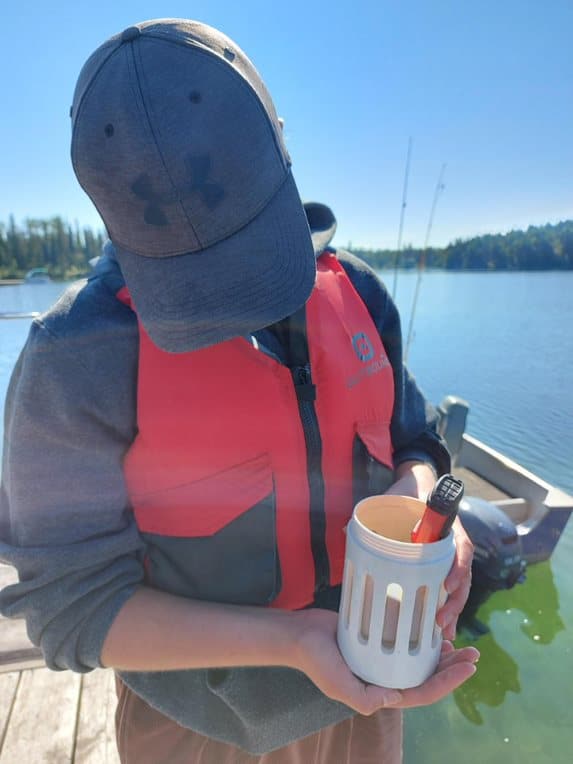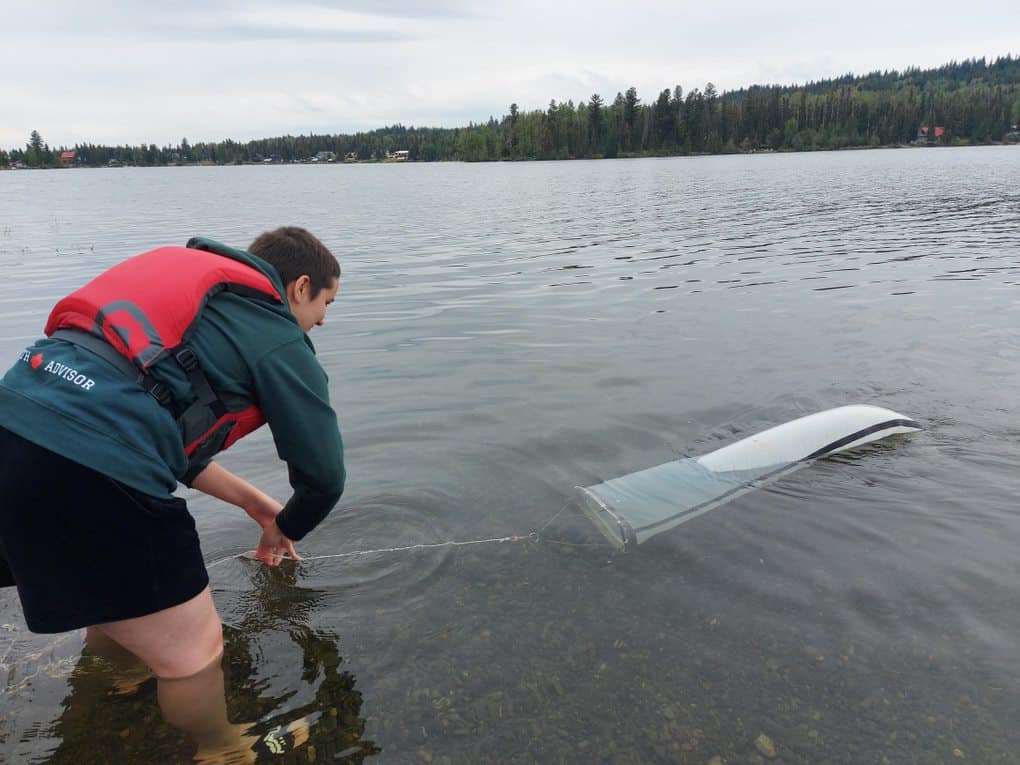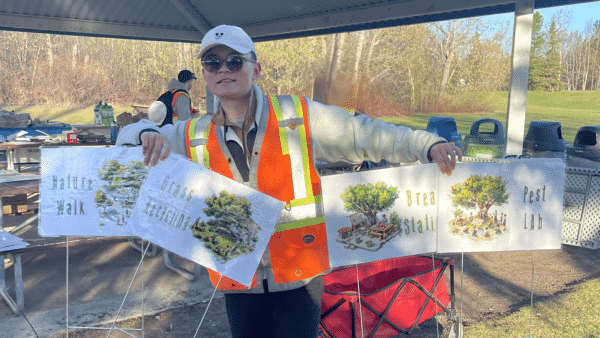November 25, 2022
ISCBC was joined by 100 Mile House youth, and ISCBC volunteer, Junaya Nielsen, for last month’s round of invasive mussel sampling in the Cariboo. Nielsen joined sampling for two days, visiting the six southern Cariboo lakes being monitored this year.
“I really enjoyed viewing the different lakes in our area and seeing how much the habitats vary from lake to lake. It’s important to keep those lakes clean and in their original state,” said Junaya. “Taking preventative measures, like monthly sampling for invasive mussels, is necessary to ensure that we maintain our lakes and the native species that live within them.”
Samples were taken from 11 lakes in the Cariboo region from June to September. No invasive Zebra or Quagga mussels were detected this year, and to date they have not been detected in BC waters. This sampling is conducted as part of the Province’s Invasive Mussel Defence Program which is focused on preventing the introduction of invasive mussels into BC through lake monitoring, watercraft inspection stations and outreach and education.

Zebra mussels (Dreissena polymorpha) and Quagga mussels (Dreissena rostriformis bugensis) spread quickly once established in an area due to their ability to rapidly reproduce; female mussels can produce up to one million eggs per year. Unlike our native mussels, Zebra and Quagga mussels anchor to surfaces and create large colonies that attach to docks, clog waterpipes, and damage boats. They can survive up to 30 days outside of water, emphasizing the need to Clean Drain Dry boats and other watercraft/equipment when exiting all waterbodies.
Any suspected invasive mussels should be reported immediately to the Conservation Officer Services Report All Poachers and Polluters: 1-877-952-7277 (RAPP). For more information about BC’s Invasive Mussel Defence Program and what to do if you are transporting watercraft into BC, please visit: www.gov.bc.ca/invasivemussels. All invasive species sightings in BC can be reported using the Report-Invasives BC app.
The project was made possible through a grant with the Habitat Conservation Trust Foundation, with funding provided by the BC Ministry of Land, Water and Resource Stewardship.
For more information on mussel monitoring in the Cariboo, contact ISCBC at info@bcinvasives.ca.
Join like-minded young adults to plan and carry out real-world activities. Support our goal to support healthy habitats and communities, keeping them free of invasive species. Learn more about becoming a youth volunteer!
Share





